Psychology
-
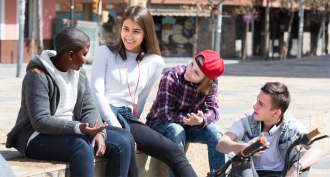 Psychology
PsychologySearching for better, cooler friends might backfire
When people try to find the best possible people to hang out with, they become less happy in life, a new study finds.
-
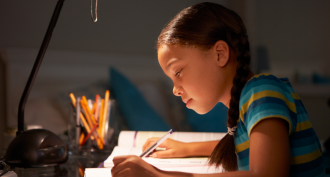 Psychology
PsychologyNoticing mistakes boosts learning
People who pay attention to their mistakes are more likely to do better the next time, data show.
-
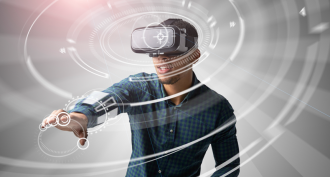 Tech
TechCool Jobs: Doing real science in virtual worlds
Virtual reality isn’t just for gamers. Scientists are using VR technology to tackle real-world problems.
-
 Psychology
PsychologyPeople tend to tune out details of ‘female’ jobs
Stories about people performing ‘women’s’ jobs are less memorable, a teen’s research finds.
-
 Psychology
PsychologyTeens make riskier decisions than children or adults
Teens may make risky decisions in part because they don’t care about uncertainty.
-
 Psychology
PsychologyPhysically abused kids struggle to learn about rewards
What physically abused kids learn about rewards at home can lead to misbehavior elsewhere.
By Bruce Bower -
 Health & Medicine
Health & MedicineMental illness may be a common life experience
Those who stay mentally healthy from childhood to middle age are exceptions to the rule. Most people don’t, a new study reveals.
By Bruce Bower -
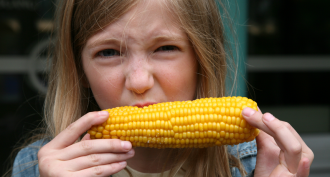 Brain
BrainChewing or breathing sounds make you seethe? Blame your brain
People who can’t stand everyday sounds, such as chewing and breathing. The reason traces to how their brains are wired, new research finds.
-
 Health & Medicine
Health & MedicineBullying hurts — but peer support really helps
Bullied kids face more mental illness as adults, new studies find. Other research suggests support from other kids can lessen the impacts.
-
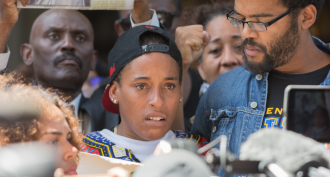 Science & Society
Science & SocietyRacism hurts
Hate crimes and harassment since the 2016 election affirm that racism still exists in America. Here’s what racism is, how it hurts and how people who witness it can respond.
-
 Science & Society
Science & SocietyFive things students can do about racism
Racism plagues societies around the world and has since ancient times. But scientists who have studied its impacts offer suggestions on how to make it stop.
-
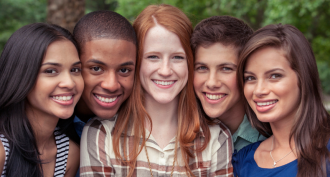 Psychology
PsychologyWhat makes a pretty face?
Beautiful faces are symmetrical and average. Do we prefer them because this makes them easier for our brains to process?